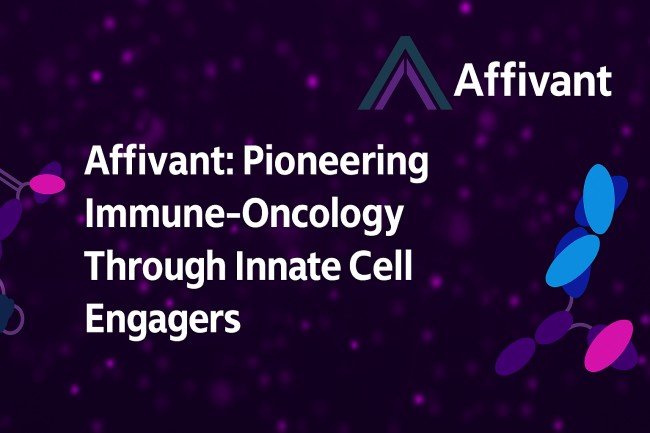Affivant: Pioneering Immune-Oncology Through Innate Cell Engagers

Cancer remains one of the most challenging diseases of our time, and the search for innovative therapies continues to evolve rapidly. Affivant, a biotechnology company based in Basel, Switzerland, is taking bold steps in the field of immune-oncology. By harnessing the power of the innate immune system, Affivant aims to redefine how the body’s natural defences can be guided to fight cancer more effectively. With a unique focus on bi-specific innate cell engagers, the company is shaping a new pathway for targeted therapies that could benefit diverse patient populations.
Company Overview
Headquarters and Origins
Affivant is headquartered in Basel, Switzerland, a global hub for pharmaceutical and biotechnology innovation. The company was founded with the vision of developing next-generation immune-oncology solutions that go beyond conventional therapies. Rooted in scientific excellence and strategic collaborations, Affivant embodies the growing momentum of European biotech firms that are making waves on the global stage.
Specialties
The company specialises in the development of bi-specific innate cell engagers (ICEs). These are advanced, tetravalent antibodies designed to link tumour antigens with innate immune cells, such as natural killer (NK) cells and macrophages. Unlike traditional approaches that primarily activate T cells, Affivant’s technology engages the innate immune system, offering a potentially safer and more versatile therapeutic strategy.
Website
The official website of the company is affivant.com, where further insights into their research focus, leadership team, and pipeline are available. The platform reflects Affivant’s mission of combining scientific innovation with patient-centric solutions.
Innovative Approach to Cancer Treatment
What Makes Affivant Different?
While many cancer therapies rely on cytotoxic drugs or T-cell based immunotherapies, Affivant’s approach is distinct. Its lead programmes focus on targeting Folate Receptor Alpha (FRα) on cancer cells while simultaneously activating CD16A on innate immune cells. This dual-binding strategy recruits the body’s first line of defence directly to the tumour site, encouraging efficient and precise cell killing.
The Role of Innate Cell Engagers
Innate cell engagers are bi-specific antibodies that act as a bridge between cancer cells and immune cells. By binding to both, they allow the immune system to identify and attack tumours that might otherwise evade detection. This approach not only offers potential for high efficacy but also widens the scope of treatment for patients with cancers that express lower levels of specific tumour markers.
Research and Development
Lead Candidate: AFVT-2101
Affivant’s most advanced programme is AFVT-2101, a bi-specific innate cell engager targeting FRα. Preclinical studies suggest that it may prove effective in solid tumours, including ovarian cancer. Unlike some antibody-drug conjugates that require high levels of receptor expression, AFVT-2101 has been designed to perform even in cases of moderate receptor presence, potentially expanding the number of patients who can benefit.
Pipeline and Partnerships
The company is also exploring a broader pipeline of innate immune cell engagers that can be developed as monotherapies or in combination treatments. Collaborations with scientific and industry partners strengthen Affivant’s capacity to scale its research, accelerate clinical trials, and bring novel therapies to patients worldwide.
Vision and Mission
Affivant’s mission is clear: to unlock the potential of the innate immune system in the battle against cancer. By focusing on precision, safety, and scalability, the company is not only contributing to scientific progress but also providing hope for patients who currently face limited treatment options.
Patient-Centric Approach
Every development decision is guided by patient needs. The emphasis on designing therapies that address tumours with varying levels of antigen expression underlines the company’s commitment to inclusivity in treatment outcomes.
Future Outlook
The global biotechnology landscape is highly competitive, yet Affivant is well-positioned to stand out. With a strong base in Switzerland, strategic partnerships, and a forward-thinking approach to oncology, the company is set to advance rapidly. As clinical studies progress, Affivant’s therapies could transform how cancers are treated, potentially redefining the standard of care for solid tumours.
Conclusion
Affivant exemplifies the innovation driving the biotechnology sector today. With its headquarters in Basel, its focus on immune-oncology, and its specialisation in innate cell engagers, the company is charting a new course in cancer treatment. By activating the body’s natural defences in a safe and targeted way, Affivant has the potential to deliver therapies that make a lasting impact on patients’ lives.



